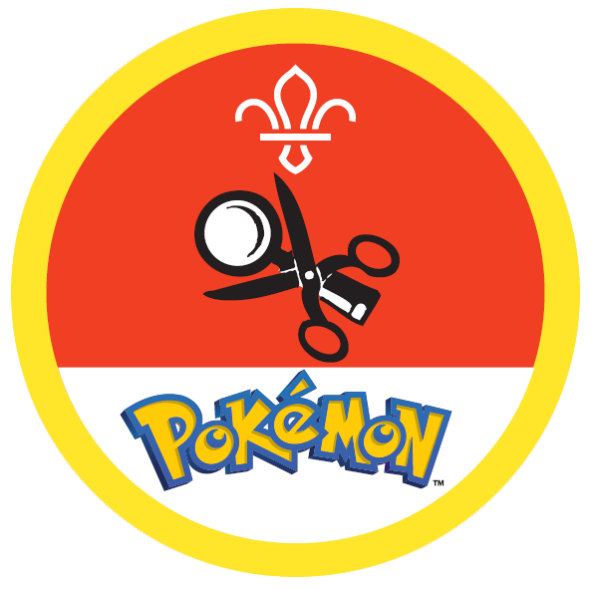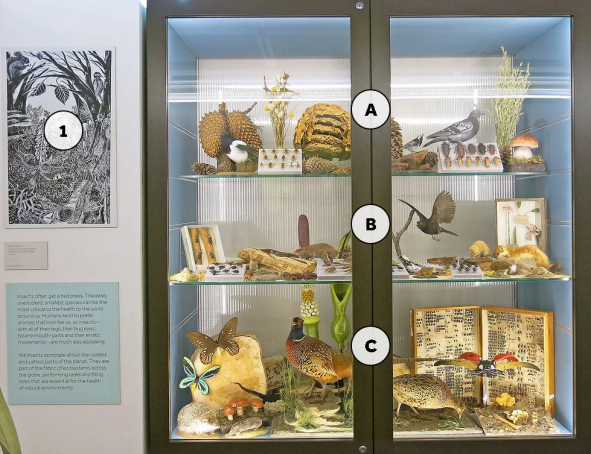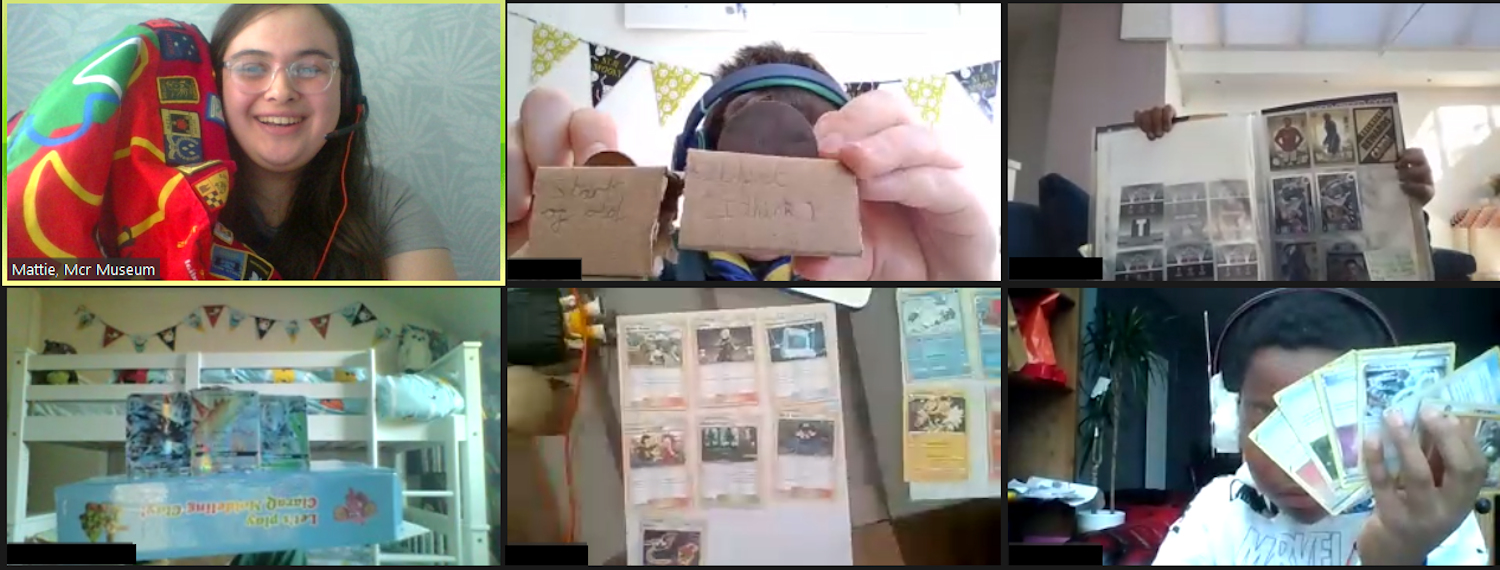As part of a series of posts about Manchester Museum’s work to support Scout Groups and Guide Units, Mattie Davies (they/them), our Inflatable Museum Support Assistant, shares some updates on a new session for Scout Groups exploring collections and collecting.
One of my favourite recurring badges as a Cub Scout in the early 00s was the Collector Activity Badge. Our annual Collector Badge meeting was an opportunity to share and display our collections (Beanie Babies, Pokémon cards and Scout badges were amongst my own collections), to ask each other questions about our collections, and to earn a new badge. The Collector Badge would eventually contribute to a lifelong passion for collections as, at the age of 12, I joined the International Badgers Club and, a decade later, came to work at Manchester Museum whose own collections include over 4 million objects!

To earn their Collector Activity Badge, Cub Scouts must:
1. Build up a collection over three months
2. Display it in an interesting way
3. Talk about items in their collection
4. View a collection made by someone else.
As we started planning the pilot sessions, we agreed that we had a great opportunity to highlight the breadth of the Museum’s collections and work involved in caring for and displaying material. Therefore, our Collector session puts particular emphasis on the work of curators and conservators: curators are the experts in their collections and conservators are experts in caring for objects. During the session we encourage the Cub Scouts taking part, to become curators and conservators of their own collections.

To begin the session we invited Cub Scouts to show us any existing collections, potentially fulfilling requirement 3 (typically, there’s a few young collectors who are bursting at the seams to share!). Some collections are almost standard amongst Cub Scouts, such as collections of Pokémon cards (just like those I had shown twenty years earlier): particularly fitting given that Pokémon are currently sponsoring the Collector Activity Badge for Cub Scouts. Other collections would fit in nicely amongst Manchester Museum’s own, such as the collection of coins one Cub Scout shared with us.
For the Cub Scouts who had not yet started a collection, we hoped that a virtual tour of Manchester Museum’s own collections would inspire them (and fulfil requirement 4), so we worked with Jenny Discombe, one of our Conservators at Manchester Museum. Jen spoke about her role, describing the various collections she cares for and how she prepares collections for display. With the museum still closed to the public, Jen and I made a series of films exploring the collections, revealing the breadth of Manchester Museum’s collections. During the session Jen talked the Cub Scouts through the footage as we showed the films and then answered their many questions.



The 2nd/241st Manchester Scout Group were the first to pilot the session, and their feedback has helped us to reassess the length of the session and balance of activities. They’ve also helped us to decide which of the collections we should feature in the session: as I said, there are over 4 million objects at Manchester Museum and our collections range from A to Z, literally, from Archaeology to Zoology! As expected, dinosaurs proved very popular so the palaeontology collection is a natural starting point for the session. We also found that collections such as botany and coins (numismatics) were appealing as they contain familiar items that young people might have already encountered or may be able to collect themselves.
To fulfil requirement 2 for the badge, the final activity in our session focused on creating an interesting display using their own collection or one they had seen elsewhere. For inspiration, we shared some examples of the different displays at Manchester Museum. As well a showing some of the different ways that collections are displayed in the museum, we also included examples from our Beauty and the Beast online exhibition to encourage the group to think about virtual displays.
We were pleased to see how engaged in the activities the Cub Scouts were. Some Cub Scouts drew display cases and filled them with drawings of their collections. Others displayed their collections of coins and Pokémon cards in 3D cases, constructed out of cardboard. Some even took photographs to make a digital display. They all wrote labels for each object, describing what it is and why it’s important.
The session closed with the group sharing their impressive array of displays with each other, sharing ideas and inspiration for future displays. I suggested that the Cub Scouts take their displays to a pack meeting to build their own museum: just like Manchester Museum is made up of lots of different collections and displays, a museum of their Scout Group could combine all of the displays of the individual collections.

Our second pilot session was with the 465th Manchester Scout Group where we were able to test out changes to the content and timings that had been suggested by the first pilot group. After the session we discussed how a Scout Group Museum was the natural starting point for a group to work towards the Local Knowledge Activity Badge; researching the Scout Group’s history and heritage to create another display for their own Scout Group Museum; a possible extension activity that could be shared with Scout Leaders.
Both Scout Groups gave really positive feedback and valued the unique offer the Museum gave in terms of supporting their group’s attaining their Collectors Badge. They felt the session would be useful to fellow Scout organisations, for both opening the topic and part way through. I’m really pleased with the progress we’ve made in piloting and developing the session. A great big thank you to the Scout Groups and their leaders who have supported our pilots and been so generous with their time and feedback as critical friends.
If you’re a local Scout Group or Guide Unit and would like to work with us to develop and test our new sessions, please get in touch: museum@manchester.ac.uk.
